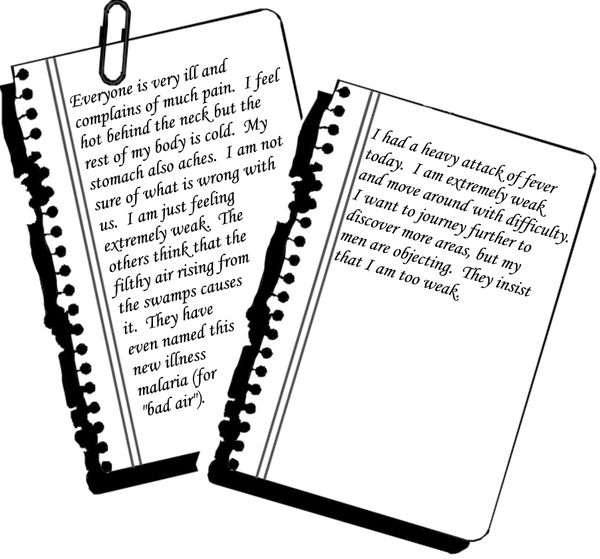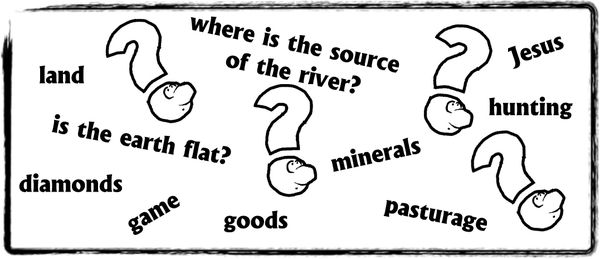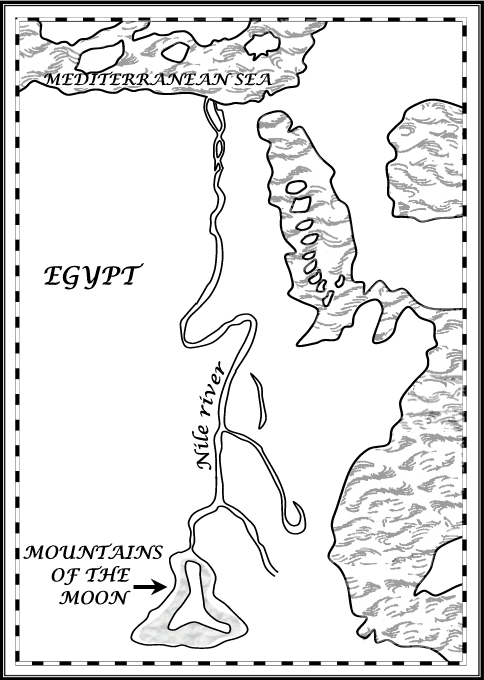| << Chapter < Page | Chapter >> Page > |
We often read stories about famous explorers who discovered places and countries. Of course they did not really discover whatever object or country they claimed to have seen first. The local inhabitants were there before them and naturally knew their countries and the particular places very well. The famous explorers therefore are not the true discoverers, but merely the people who introduced those regions to the rest of the world.
There are also people who discovered areas or countries that had not been seen or heard of by any other person. Discovery therefore is a way of gathering information about places and things to present the knowledge of such things and places to the world. Africa is a good example of a continent on which there were people who did not have the technology to make themselves known to the rest of the world. Because of this, we can be grateful to those who were the first explorers of this continent.
a) Give your own explanation of what an explorer is.
b) Could we view the early primitive people as the first explorers? Explain your point of view.
c) You are a member of a group of primitive explorers who have to explore an unknown area. What would you bring back from this area when you return from the expedition to persuade other people that you (like true discoverers) have discovered something new? Discoverers (explorers) only started to draw maps , keep diaries and write books about their experiences much later.
d) Study the following excerpt from a diary. Do you know what the illness is described? (Do you regard it as a good description?)

e) Try to determine what it is that urges people to investigate unknown regions.

Group work!
f) Let's see whether your group can determine why the following people wanted to come to Africa. The different possibilities are contained in the column on the right.
| Person | Reason for coming | Reasons |
| D.E.I.C. (2) | ||
| Mungo Park | ||
| René Caillié | ||
| Burton en Speke | ||
| Livingstone (2) | ||
| Stanley |
g) Why did the early travellers prefer to travel overland rather than use a sea-route?
| ocnea rucrents | romsts | weesenid | ? |
| O________c______ | S________________ | S______w_______ |
The unknown and unsolved mysteries of Africa enticed increasing numbers of adventurers!

Diogenes, a Greek seafarer and philosopher, wrote about two white inland mountains in Africa and suggested that they were the source of the Nile. (Was he right?)
READ MORE ABOUT THESE ADVENTURERS IN THE NEXT LEARNING UNIT!
| LO 2 |
| HISTORICAL KNOWLEDGE AND UNDERSTANDING The learner will be able to demonstrate historical knowledge and understanding. |
| We know this when the learner: |
| 2.1 chronology and time: |
|
| 2.2 cause and effect: |
|
| 2.3 change and continuity: |
|
Activity
(a) Explorers: People who introduce unknown/new products or places to the world.
(b) Yes. Also introduced fire.
(d) Malaria transmitted by the Anopheles mosquito to people. Symptoms: fever, lack of energy, sleepiness, vomiting, loose defecation, headaches, convulsions. The only way to determine whether a person has malaria, is to analyse a blood sample. Tablets, repellents as creams or in intravenous form, and mosquito nets help to prevent malaria. Treatment must take place immediately.
(f)
| DEIC | Refreshment station, route to the east | ||
| ParkBurton/Speke | Source of River NigerSource of River Nile | CaillieStanley | MoneyBrings an end to slave trade |
| Livingstone | Missionary work, Brings an end to slave trade |
(g) Ocean currents, storms, sea winds, superstitions

Notification Switch
Would you like to follow the 'History grade 6' conversation and receive update notifications?